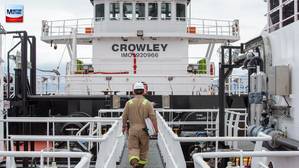German-Indian joint venture emerges as the sole bidder for India's $5 billion submarine deal
According to a stock exchange filing, German shipbuilder ThyssenKrupp, along with its Indian partner, has cleared field trials in order to build six advanced conventional subs for the Indian Navy.
An Indian defence source claimed that their potential competitor, the Spanish state-owned shipbuilder Navantia (which is partnered with India’s Larsen & Toubro) could not meet navy requirements for trials in 2024 to test key technologies.
India needs to boost its naval capability and modernise its army to counter China's increasing presence in the Indian Ocean.
Mazagon Dock Shipbuilders Ltd., a state-owned partner of ThyssenKrupp in India, announced Thursday, via an exchange filing, that the field trials for this project had been successful, and the Indian Defence Ministry has invited the company to commercial negotiations next week.
Requests for comments from the defence ministry, L&T or its sub-partner were not responded to.
The project's key requirement was the air-independent propeller (AIP) which allows diesel-electric attack subs to stay under water for more than two weeks. A conventional sub without AIP would need to surface to recharge its batteries every few days.
According to the nonprofit Nuclear Threat Initiative, India's 17 conventional subs do not possess AIP technology. However, their neighbours China, and Pakistan, do.
Analysts claim that the project to build six new submarines was delayed for more than a decade. The first one is now expected between three and five years following the agreement of a contract.
Over the last few years, India's conventional subs have been upgraded and retrofitted multiple times. They are now nearing the end their useful lives.
(source: Reuters)








